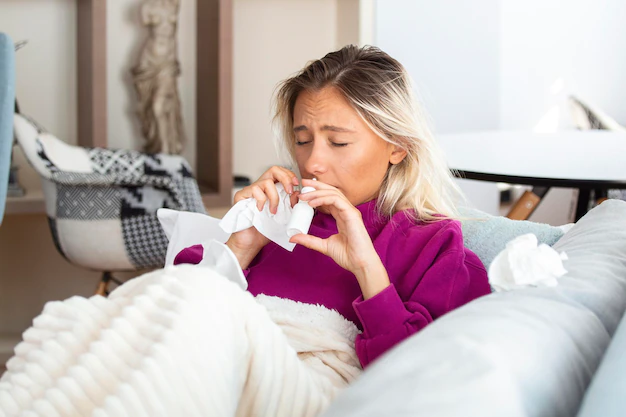A wide range of medications are available to help individuals with asthma cope with symptoms, such as coughing, wheezing, difficulty breathing, and chest pain or discomfort. But a new study suggests treatment should also include testing indoor environments for mold, and detecting the presence of specific mold species most likely to trigger asthma symptoms.

“We have found the strongest evidence yet of [mold’s] potentially harmful effects, with higher levels of some of these molds presenting a breathing hazard to people suffering from asthma, worsening their symptoms significantly,” states Richard Sharpe, a lead author of “Indoor Fungal Diversity and Asthma: A Meta-Analysis and Systematic Review of Risk Factors,” published in the Journal of Allergy and Clinical Immunology in August. The study evaluated 17 studies to pinpoint mold varieties most often associated with increased asthma symptoms.
Common Home Fungi Can Raise the Risk by 36% to 48%
Weitz: “Testing for Mold Should Be Part of an Asthma Treatment Plan”
The study found that four common indoor fungi species – Cladosporium, Alternaria, Penicillum, and Aspergillus – increased the risk of asthma symptoms between 36% and 48%. The meta-study also indicated that these molds could trigger the development of asthma, “although research in this area is still in its infancy,” states Sharpe. “There are two takeaways from this study,” explains Robert Weitz, Principal and Senior Project Manager with RTK Environmental Group, an environmental inspection company in the Northeast. “The first is that the strongest link ever between asthma and mold has been established. Second, it’s important to know which mold is present in the home. So, any individual with asthma, or parent who has a child with asthma, should have their home tested for mold – and they should hire a professional. Only a properly trained and experienced microbial investigator can conduct a scientific analysis of mold in the environment. You can’t identify mold species through sight or smell.”
Greater Attention to the Mold-Asthma Link
In 2004, at the request of the Centers for Disease Control and Prevention, the Institute of Medicine published “Damp Indoor Spaces and Health,” which found sufficient evidence of an association between indoor mold and asthma symptoms. More recently, a study entitled “Fungal Allergy in Asthma—State of the Art and Research Needs” published this year in Clinical and Translational Allergy states that “Studies in environmental medicine have established a clear causal relationship in mold-induced asthma.” Weitz explains that respected academic medical centers such as Case Western Reserve University School in Cleveland, Ohio, Columbia University Mailman School of Public Health in New York, New York, and Children’s Mercy Hospital in Kansas City, Missouri, have developed centers for environmental health to address the growing connection between indoor air quality and illness, particularly among children.
They identify mold as an asthma trigger, and encourage patients to keep homes as mold-free as possible. “Mold spores are naturally occurring in the environment and are easily transferred to the indoor environment,” Weitz notes. “If a home or workplace is damp, has a water leak or flood—even something seemingly as benign as an overflowing toilet—that addition of moisture can quickly establish new mold colonies to grow. To multiply, all mold needs is a moisture source and a food source such as porous material like sheetrock, cardboard, or carpeting. Within 24 to 48 hours, you could have a mold problem.” Weitz says he hopes more medical institutions, providers, and researchers will educate patients and parents about the health risks of indoor mold, particularly on children, who are particularly susceptible to its affect. “I’d like to see doctors ‘prescribe’ indoor mold testing whenever a patient is diagnosed with asthma, or if the patient’s asthma symptoms increase,” says Weitz. “Maybe the answer isn’t more medicine; maybe it is to conduct mold testing in the home so you can find hidden mold that’s triggering the asthma.” Weitz cautions consumers to hire an independent inspector who holds a certified microbial investigator (CMI) designation, who also does not do remediation work. “An independent inspector can make sure your remediation contractor doesn’t inflate the bill and does a complete job to eliminate all of the mold and prevent its return,” he says. “It’s a clear conflict-of-interest to perform both testing and remediation.”
About RTK Environmental Group | RTK Environmental Group, with offices in Stamford, CT; New York, NY; White Plains, NY; Morristown, NJ; and Washington, DC is one of the most trusted environmental testing service firms on the east coast. It has provided testing services to more than 30,000 commercial and residential customers, ranging from homeowners and real estate investors to schools, medical centers, housing authorities and many others. In addition to mold, lead, indoor-air quality, and asbestos testing, RTK performs soil, water and radon tests, and can also test for specialty toxins. Company professionals are certified, licensed, and fully insured. The public is invited to visit www.rtkenvironmental.com or call 1-800-392-6468 to set up an inspection.
* The information available on ewellnessmag.com, including text, graphics, and other materials are for informational purposes only. Reliance on any information in ewellnessmag.com is at the user’s own risk. Sponsored product placement may appear in the article. The visitor of this website acknowledges that the information available on or through ewellnessmag.com is not and is not intended to be a substitute for professional medical advice. Copyright © 2019 Brawo Press, Inc. All rights reserved.



